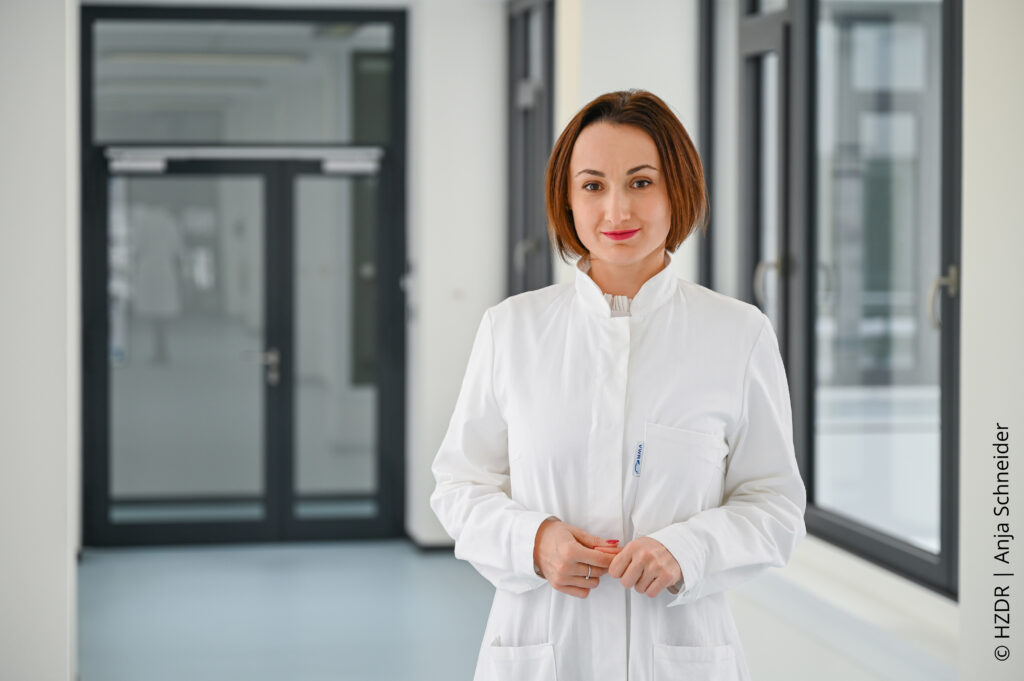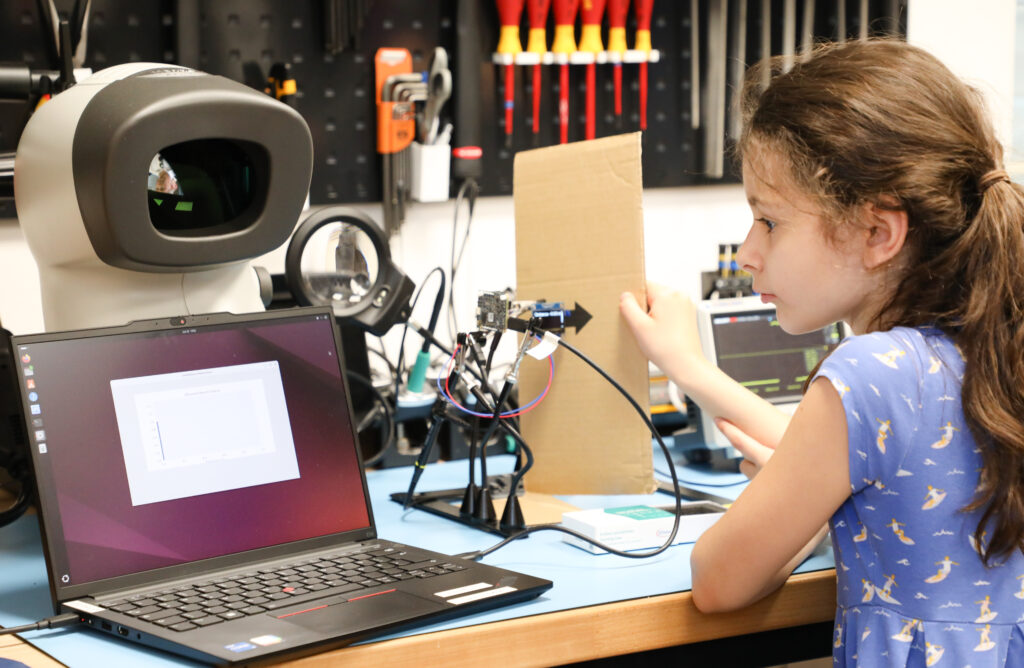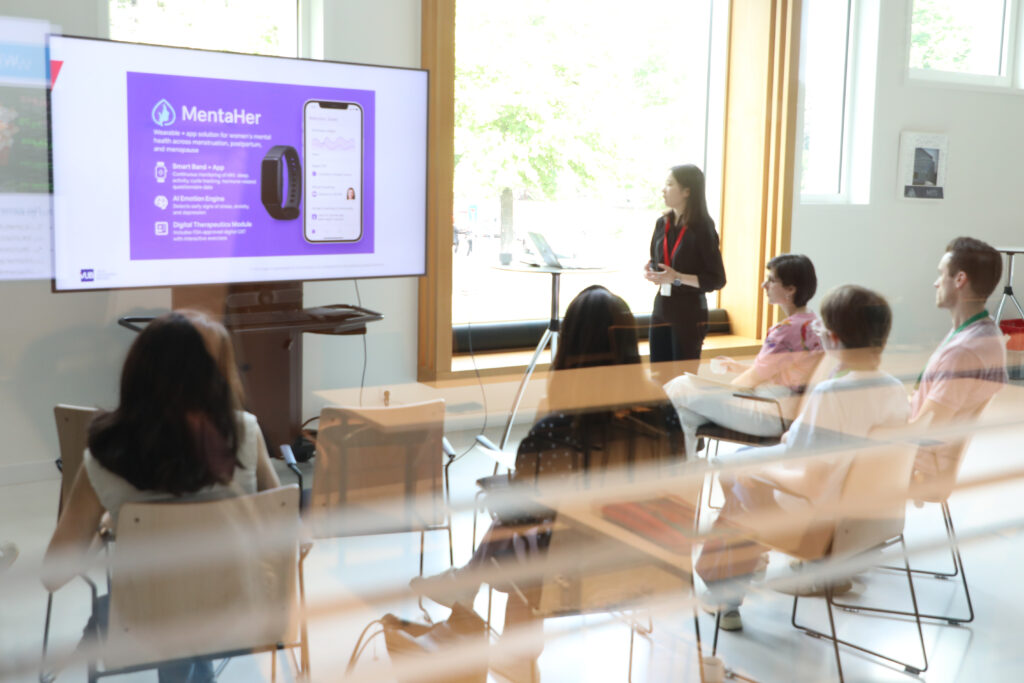My vision is to contribute to the improvement of precision medicine in clinical oncology with smart materials and bioelectronics. The nano- and microsystems developed for diagnosis, analysis and monitoring make a decisive contribution to better decision-making in diagnostics and therapy planning. The support of the EKFZ for Digital Health and the HZDR enables me to focus my research at the interface between medicine and high-tech even more strongly on clinical needs.
Medical Nanotechnology
We welcome Larysa Baraban as newly appointed
professor of Medical Nanotechnology

Larysa Baraban
Jointly established professorship
Prof. Dr. Larysa Baraban took up the newly created Chair of Medical Nanotechnology at the Faculty of Medicine Carl Gustav Carus at TUD Dresden University of Technology on 1 May 2024. The professorship was jointly established by the Helmholtz-Zentrum Dresden-Rossendorf (HZDR) and the Else Kröner Fresenius Center (EKFZ) for Digital Health. The physicist is researching nanoelectronics for individualized cancer immunotherapies and innovative, cost-effective methods for pathogen detection.
Digitalization and technological advances will enable personalized therapies, particularly for the treatment of cancer. Innovative, highly sensitive diagnostics that are seamlessly integrated into devices or clinically relevant instruments are increasingly simplifying patient care. For such applications, Professor Baraban and her team are developing smart, miniaturized biosensors based on nanomaterials and advanced microfluidics. These new technologies can be used to characterize biomolecules and (cancer) cells to fundamentally understand biochemical reactions and processes. Among other things, Baraban has developed a nanochip that can recognize individual cancer characteristics and, based on this information, enable personalized immunotherapy.
“I am grateful for the trust placed in me and the generous support for my research. The excellent scientific infrastructure in Dresden already enables patient-oriented, interdisciplinary research through the networking of TU Dresden, University Hospital Carl Gustav Carus and research institutions such as the HZDR and the EKFZ for Digital Health. My vision is to contribute to the improvement of precision medicine in clinical oncology with smart materials and bioelectronics. The nano- and microsystems developed for diagnosis, analysis and monitoring make a decisive contribution to better decision-making in diagnostics and therapy planning. The support of the EKFZ for Digital Health and the HZDR enables me to focus my research at the interface between medicine and high-tech even more strongly on clinical needs,” says Prof. Dr. Larysa Baraban.
“We are delighted that Prof. Dr. Baraban has accepted the appointment to the Chair of Medical Nanotechnology. She is an outstanding scientist who has already carried out pioneering research in the field of nanotechnology in Dresden, for which she also received an ERC Consolidator Grant. We are pleased that we can further strengthen the long-standing and very successful collaboration between the Faculty of Medicine and the HZDR with this joint professorship. The appointment will give Professor Baraban the necessary support and perspective to further advance her research and develop new technologies for medical diagnostics and treatment,” says Prof. Dr. med. Dr. Esther Troost, Dean of the Faculty of Medicine Carl Gustav Carus at TU Dresden.
With the appointment, Prof. Dr. Baraban’s previous position as head of the “Nano-Microsystems for Life Sciences” department at the Institute of Radiopharmaceutical Cancer Research at the HZDR will remain in place. She receives additional funding for her research at the HZDR as part of the Helmholtz first-time professorial appointment program for excellent female scientists.
About Prof. Baraban
Larysa Baraban began her scientific career in Ukraine, where she studied physics at the Taras Shevchenko National University in Kyiv. After successfully completing her studies, she earned her doctorate in experimental physics at the University of Konstanz. In 2009, she joined a French research team at the École Superieure de Physique et de Chimie Industrielles de la Ville de Paris (ESPCI) and worked on biotechnologies for the first time. Two years later, she went to the Leibniz Institute for Solid State and Materials Research Dresden (IFW) and then to TU Dresden to specialize in systems in the nanometer range. Since 2020, Baraban has been group leader of the “Nano-microsystems for Life Sciences” research group at the HZDR, which developed into a separate department at the Institute of Radiopharmaceutical Cancer Research at the beginning of 2023.
More News
Femtech, Ethics & Innovation: Highlights from the HALL-EKFZ Summer School 2025






